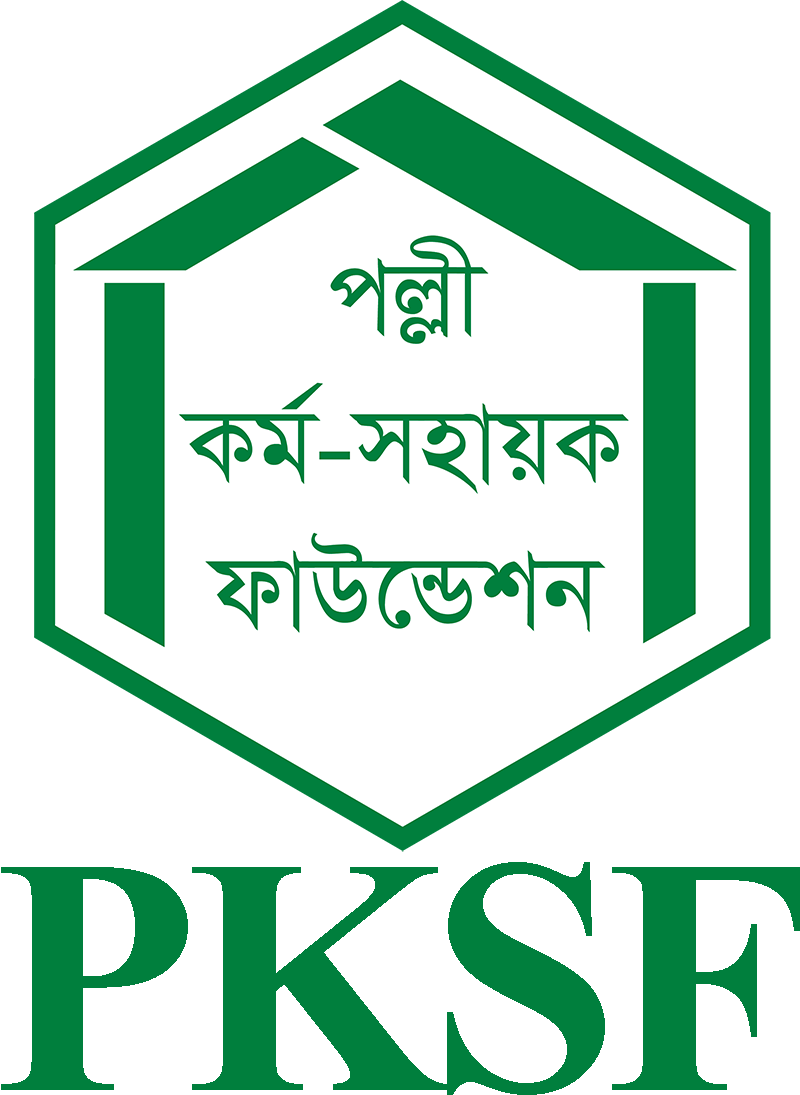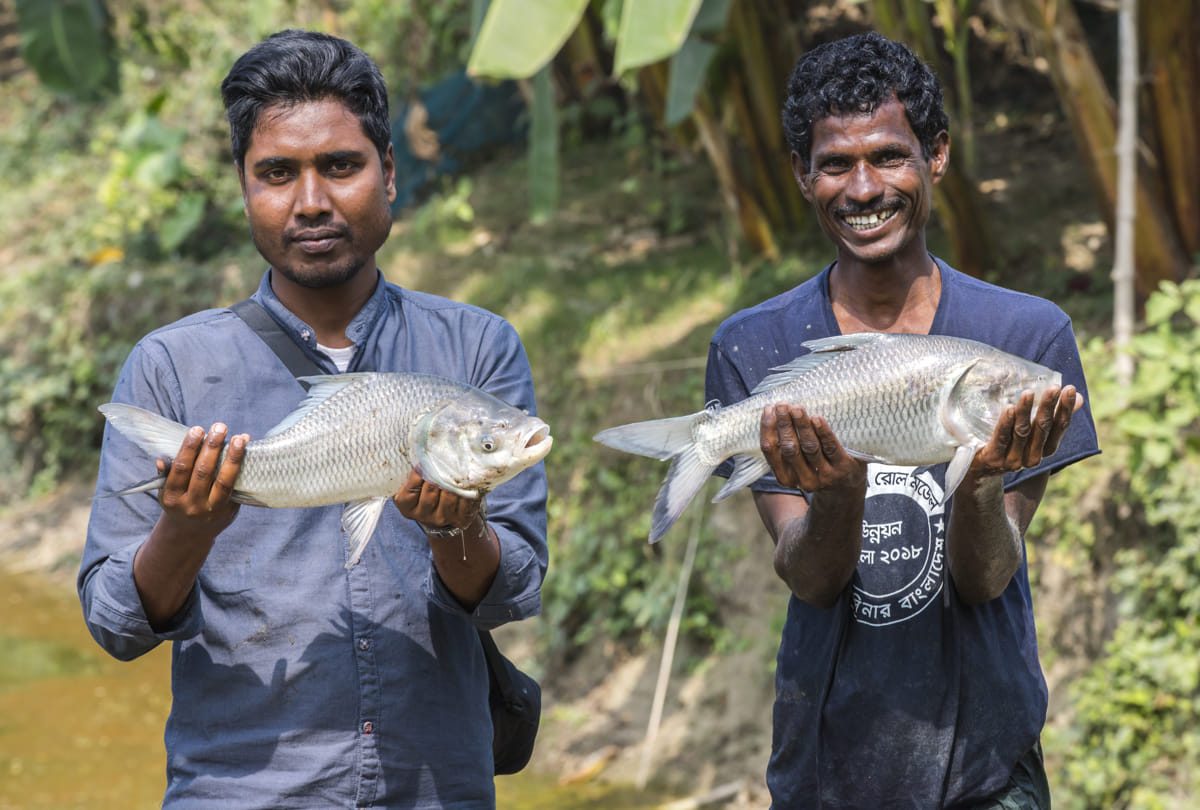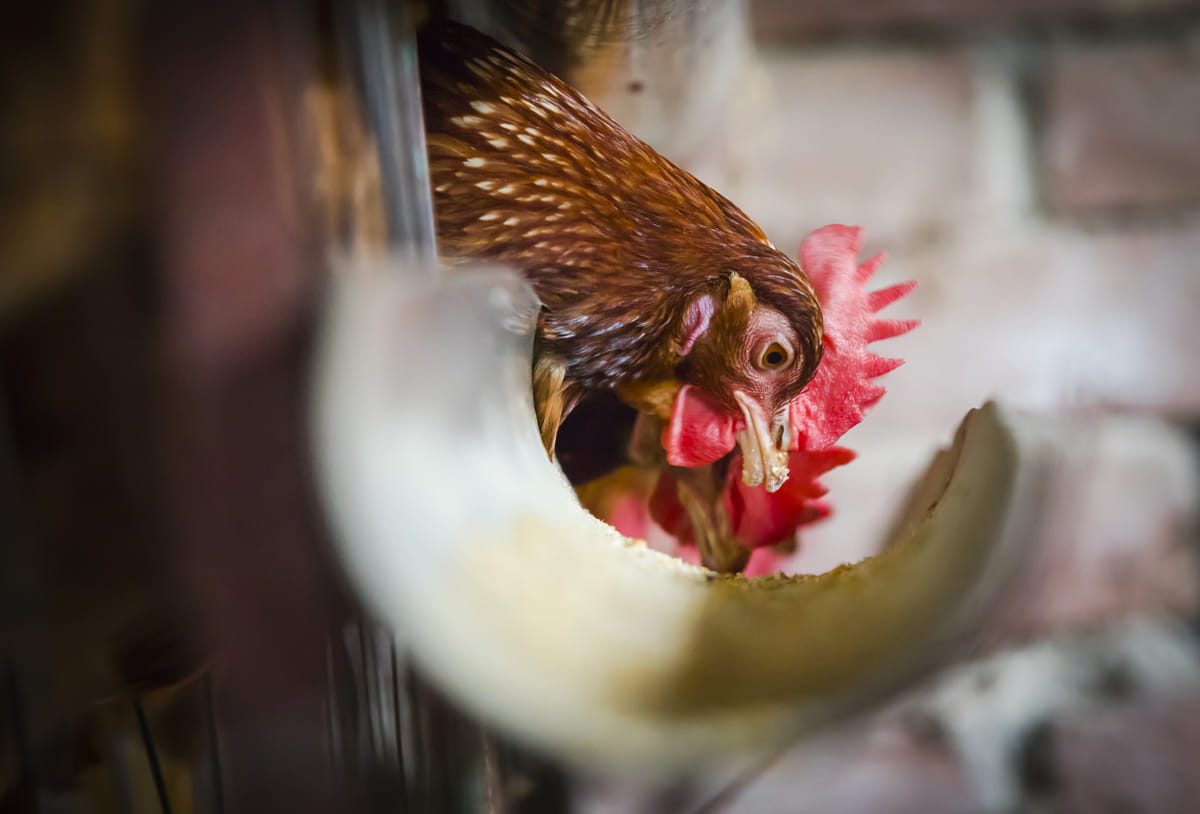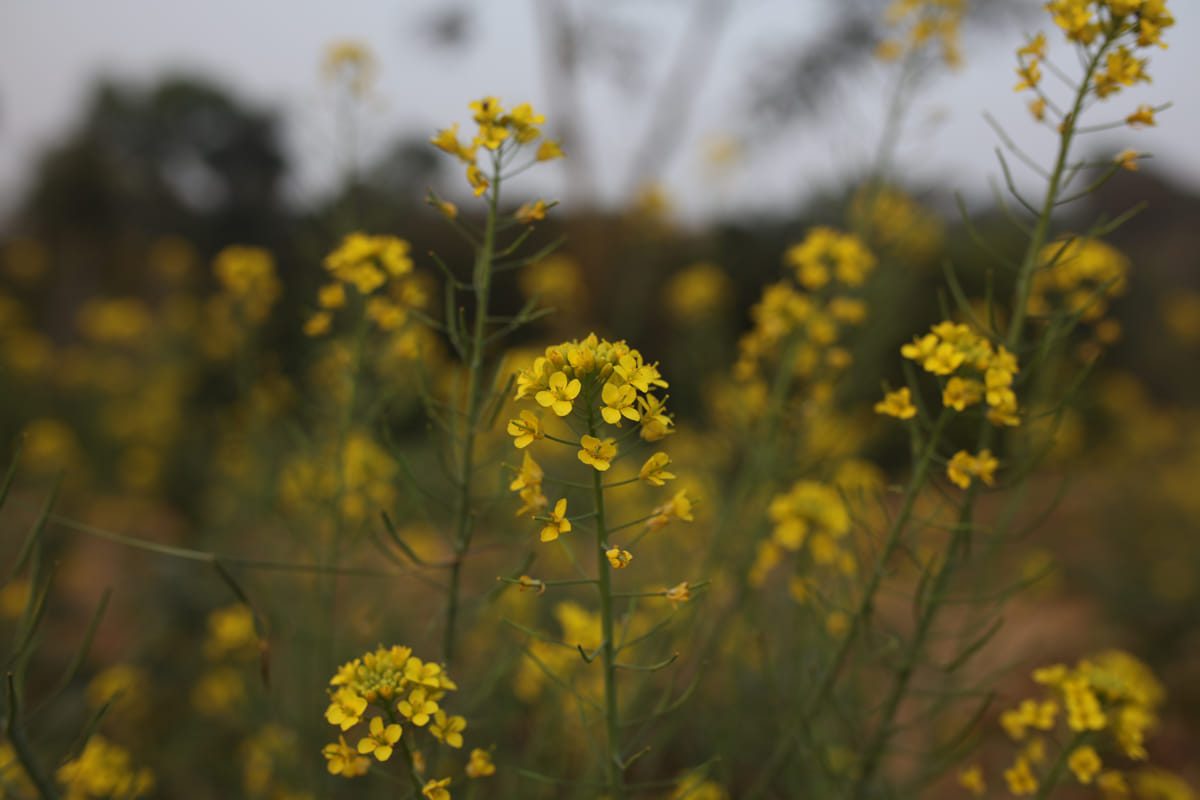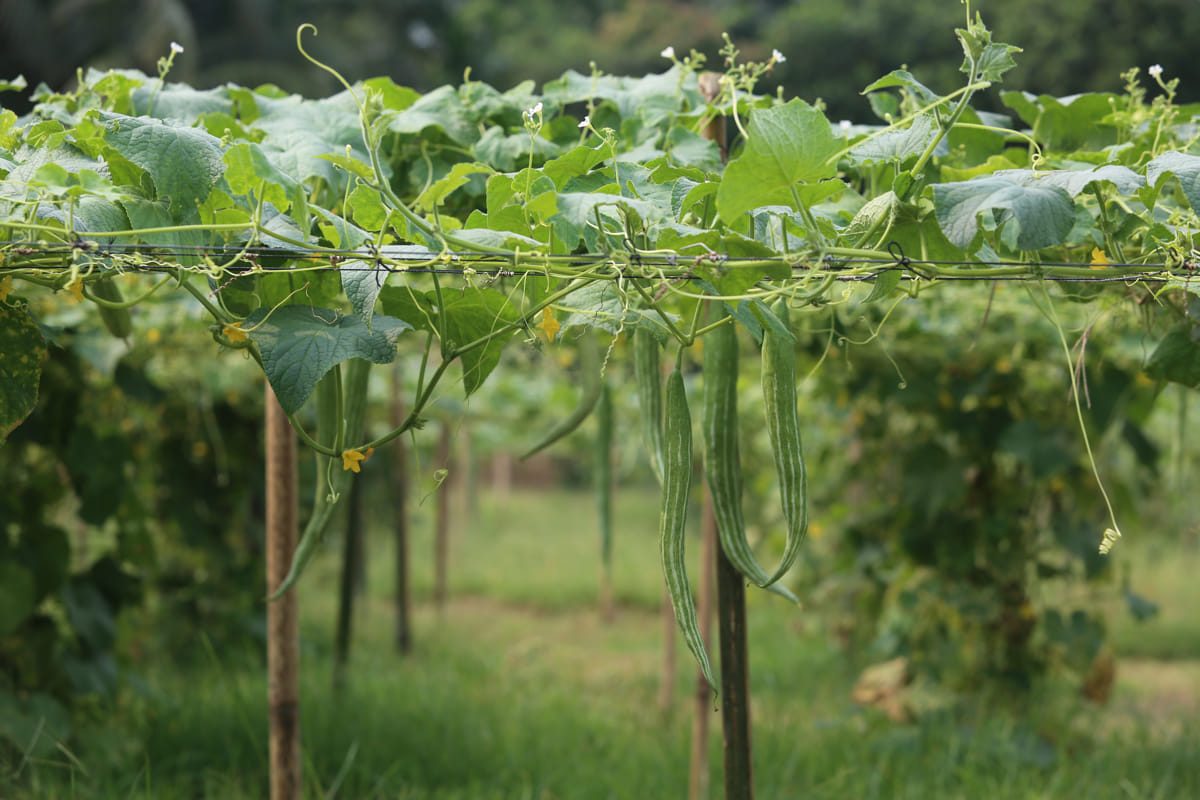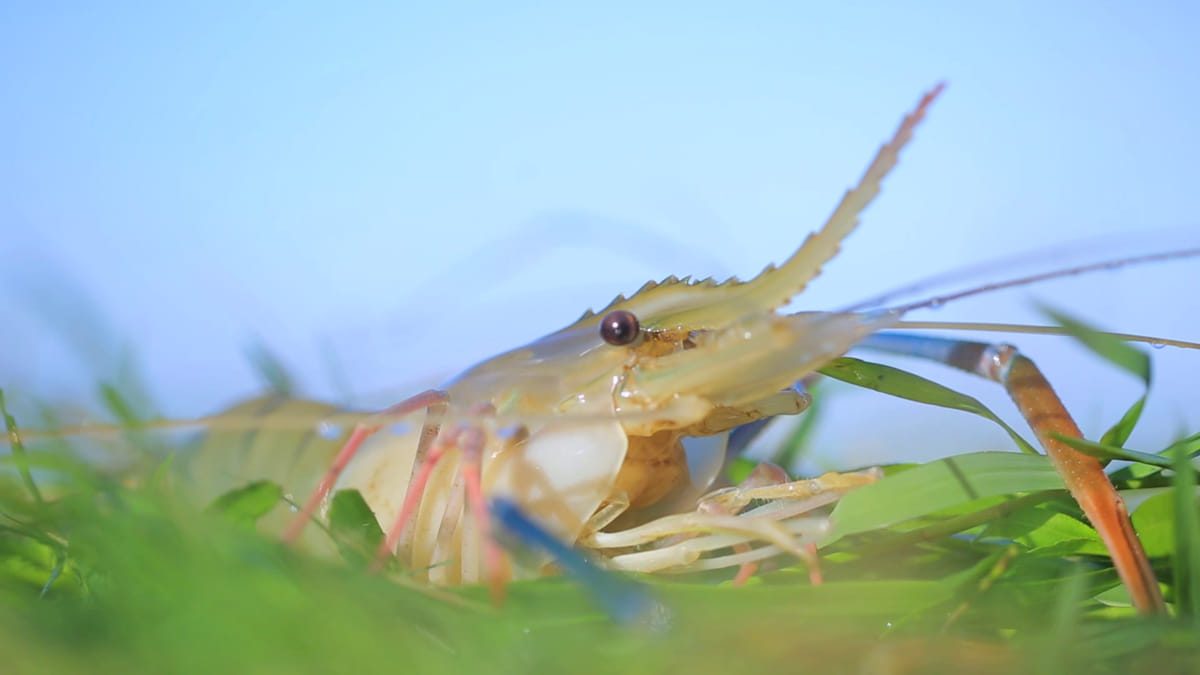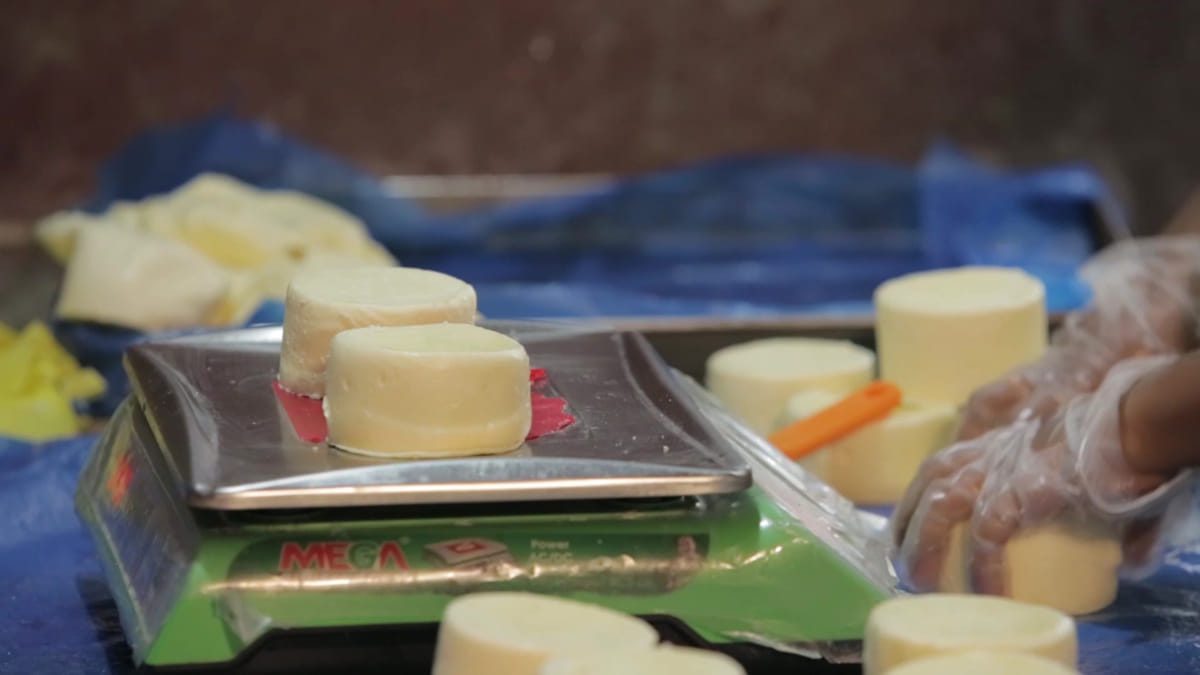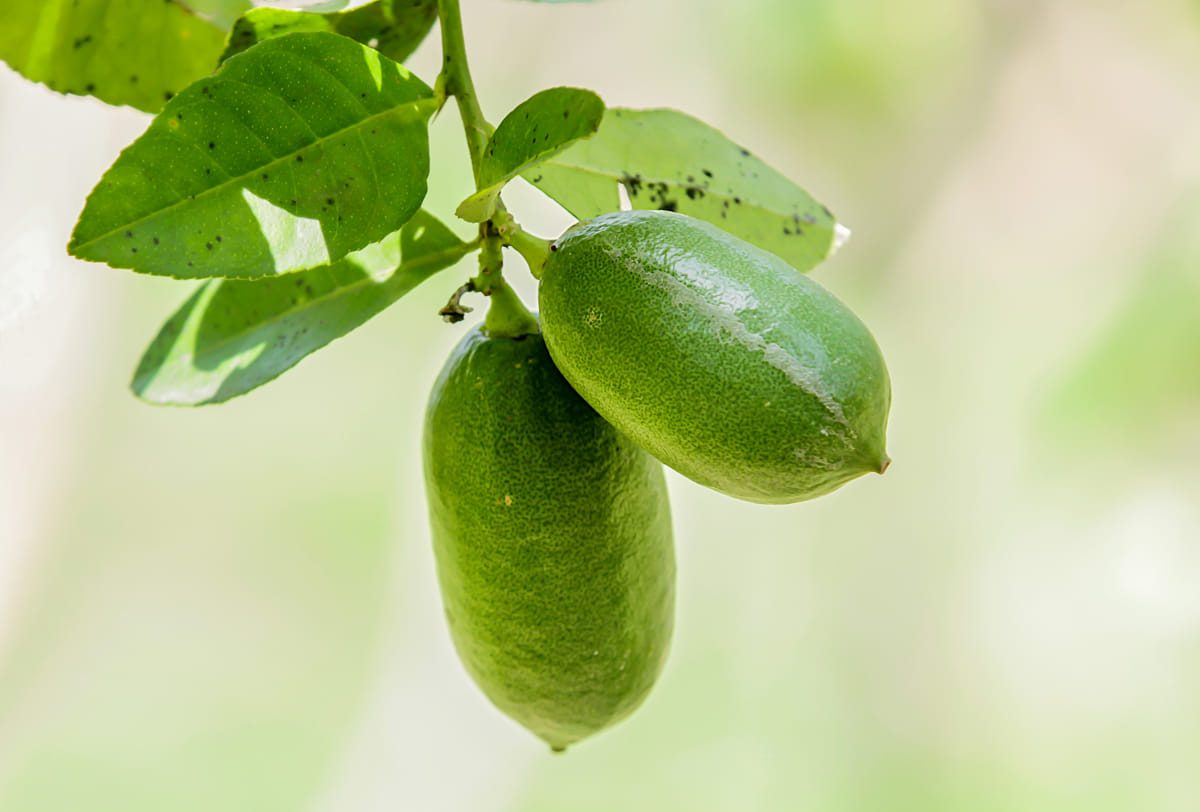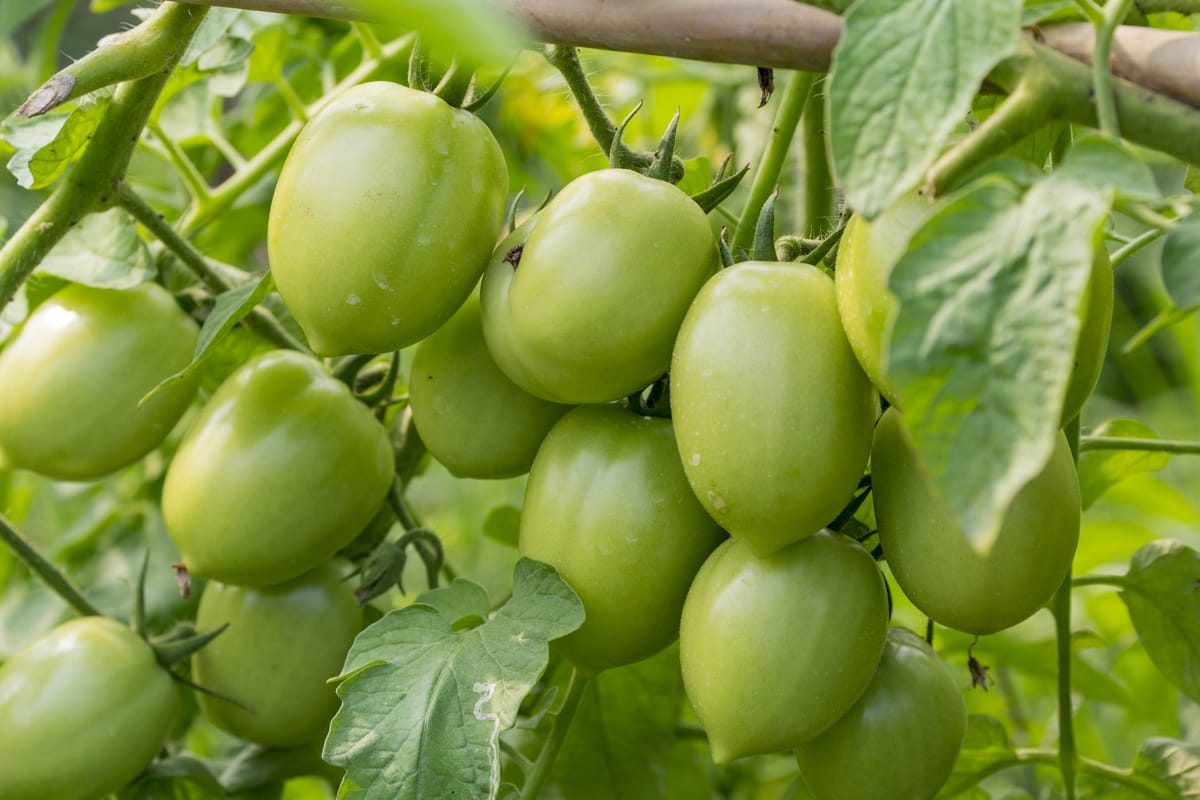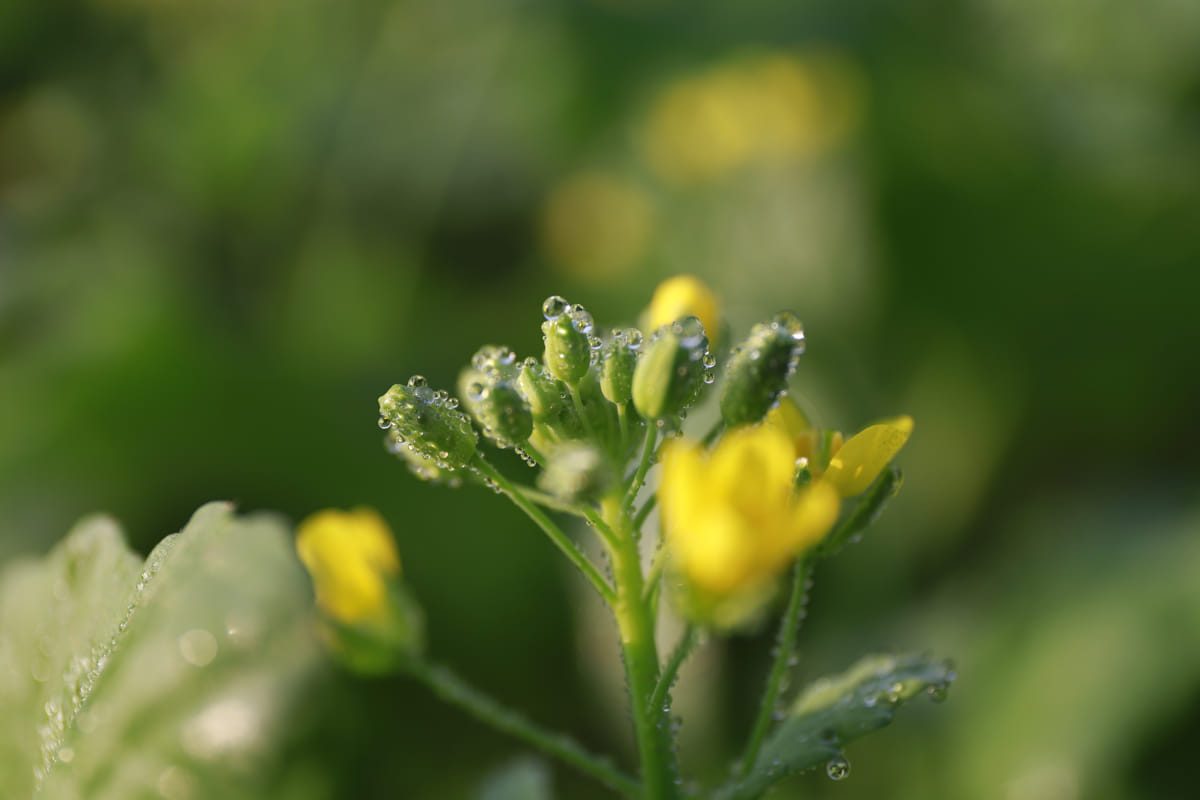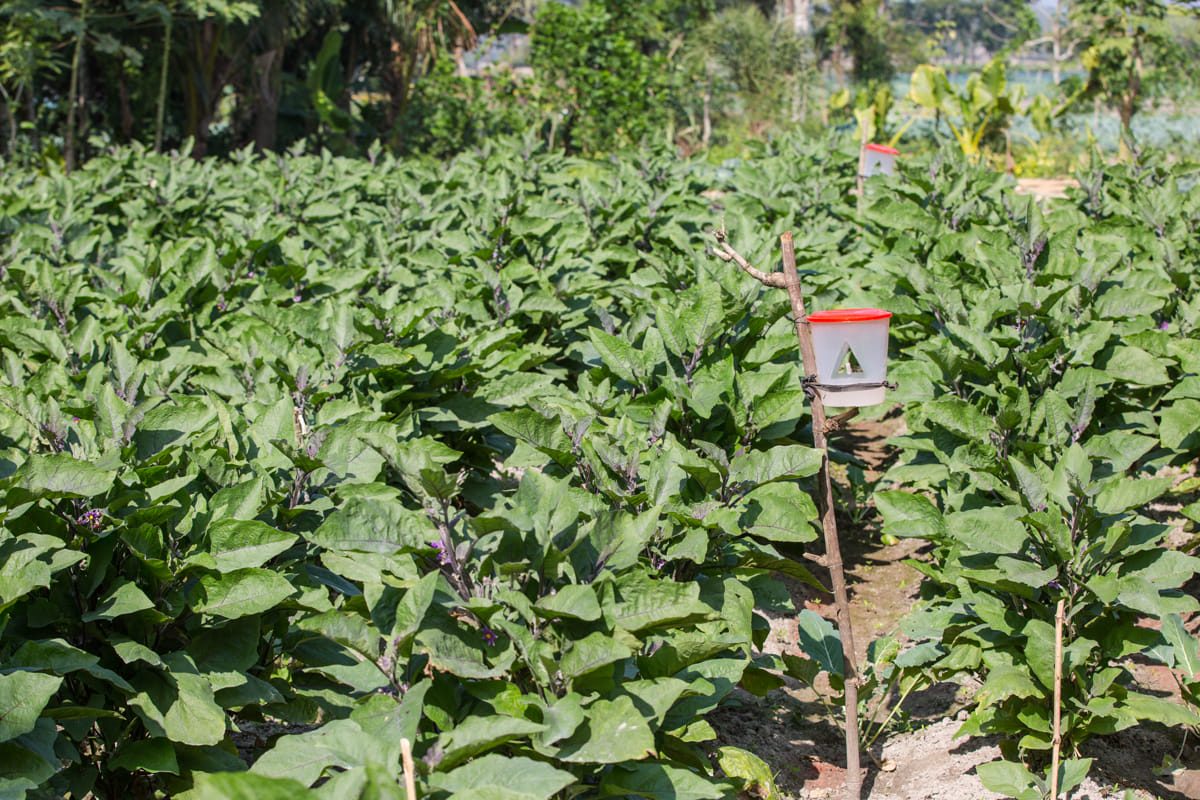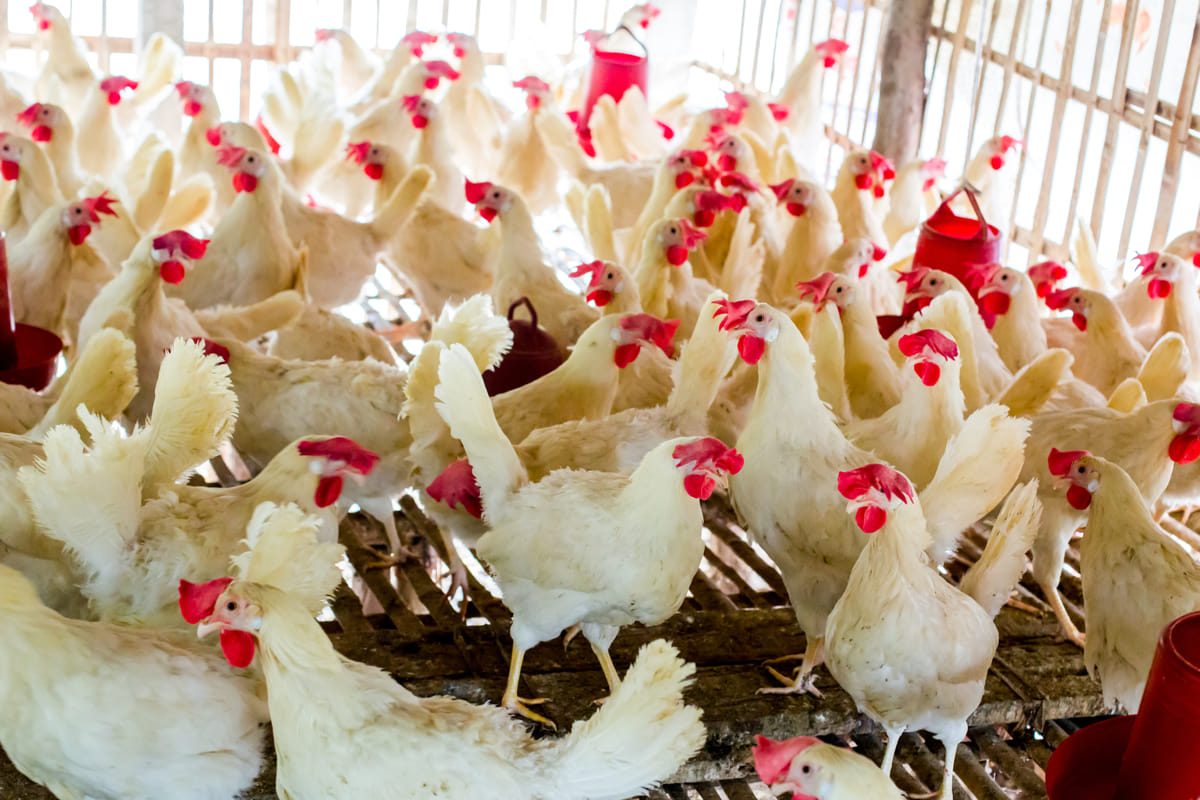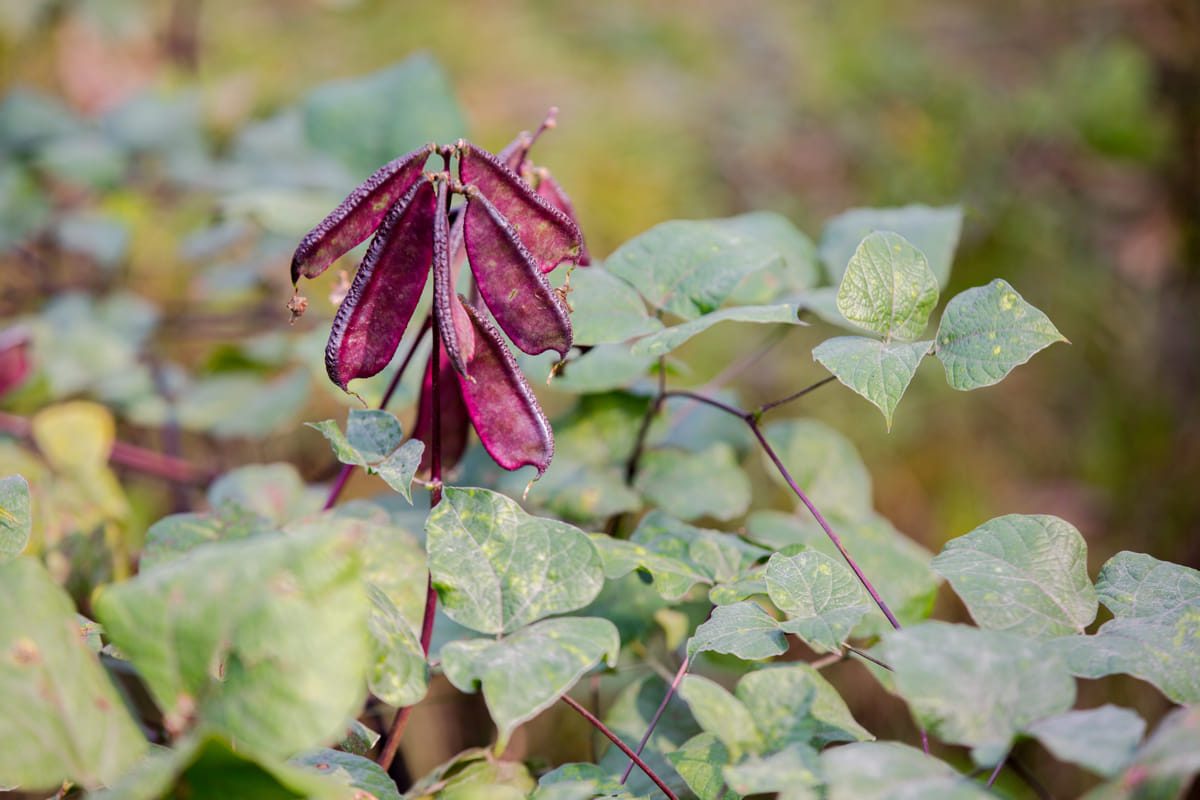Rural Microenterprise Transformation Project (RMTP)
Jointly funded by the International Fund for Agricultural Development (IFAD) and the Danish International Development Agency (DANIDA), the Rural Microenterprise Transformation Project (RMTP) is being implemented by PKSF with the objective of extending financial services for microenterprises as well as for improving income, food security, and nutrition status of small and marginal farmers, entrepreneurs, and other market actors involved in the value chains of selected high-value agricultural products.
The project makes value chain development interventions to expand markets for comparative advantage, market demand, and growth of agro-based products. There are provisions for product processing, certification, and marketing by brand image creation at home and abroad through this project. Also, there are provisions for introducing various new technologies, and methods such as Artificial Intelligence (AI), Internet of Things (IoT), Block Chain, Crowdfunding Platform under this project for poverty alleviation.
Value Chain Development Activities:
The RMTP project is providing financial and technical assistance, access to safe inputs and services, technology transfer, mechanization of farms and processing plants, production of processed goods, certification of products, and marketing of agricultural, fisheries and livestock products to 6,11,491 farmers, entrepreneurs, and market actors in 47 districts through 76 value chain sub-projects in livestock, fisheries and agriculture sectors.
Livestock: Under the RMTP project, eight Value Chain sub-projects for ‘Market Expansion for Safe Meat and Dairy Products’ are underway, serving 26,260 farmers engaged in various business development initiatives. This project is also providing technological, marketing, branding, and certification assistance to 201,480 farmers, entrepreneurs and market actors of 36 Upazilas of 12 districts. To develop livestock markets for Eid, necessary linkage was established, and immediate assistance was extended to project participants.
An agreement was signed with ‘Bio-Tech’ to conduct training on GGAP-HACCP for this project. Also, agreements have been signed with ‘Trade Global Ltd’ for farm mechanization, with ‘Narish Poultry’, and ‘Hatchery Ltd’ for safe cattle food, with ‘BRAC’ for artificial insemination of buffalo, goat, and sheep, with ‘Bengal Meat’, ‘Maya Agro’, and ‘Green Agro’ for live animal, and with ‘ACI’ for organic fertilizer.
Horticulture: PKSF is implementing 36 value chain sub-projects for development of the horticulture sub-sector. Eight female flower growers achieved remarkable success by cultivating tulip flower in Sharyalyoth and Darjipara villages of Tetulia upazila in Panchagarh district. This is the first instance of successful commercial cultivation of tulips at the farmer level in Bangladesh. Meanwhile, site selection for demo plots and collection of improved varieties of fruits, crops and flowers have been completed for 19 value chain sub-projects. Twelve Memorandums of Understating (MoUs) were signed with various private companies for the collection of high quality fruits, crops and flower varieties, organic pesticides and farm mechanization. Through these sub-projects, 1,33,587 farmers and micro- entrepreneurs from 42 Upazilas of 23 districts will get technical training, improved varieties of fruits, crops and vegetable seedlings, technical assistance, branding, certification and market expansion support.
Fisheries and Aquaculture: Through this three-year sub-project, 1,33,000 fish farmers, fish product entrepreneurs and other market actors in 31 Upazilas of 9 districts are getting a range of technical, technological and marketing support.
Training and Workshop: Through this project, 1,81,366 members received orientation on financial management. Also, 3,85,346 members were trained on nutrition, climate change, environment and various social issues. Besides, 4,275 employees of the POs received training on financial management, and 8,675 members on business management. Moreover, 53,233 people received training on cattle rearing technology. To produce safe products, the project prepared 26 master trainers on GGAP-HACCP. Furthermore, 88,453 lead farmers received training on GGAP.

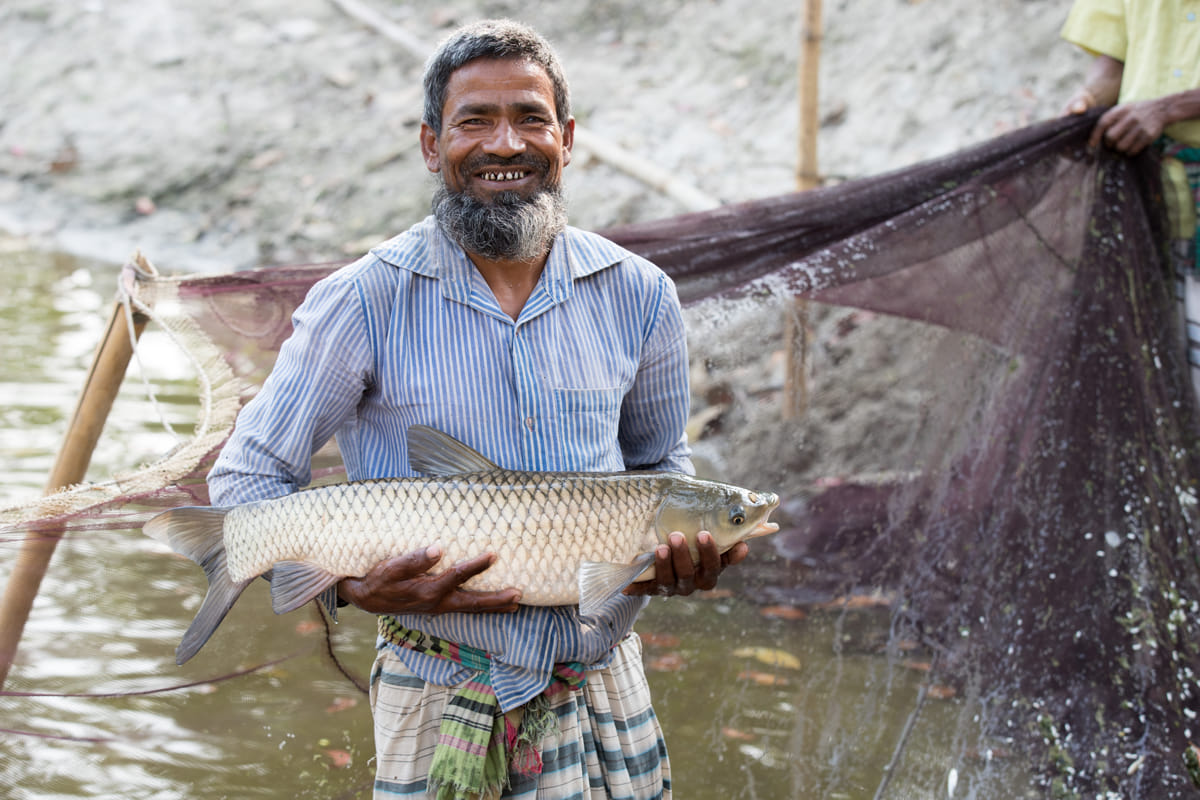
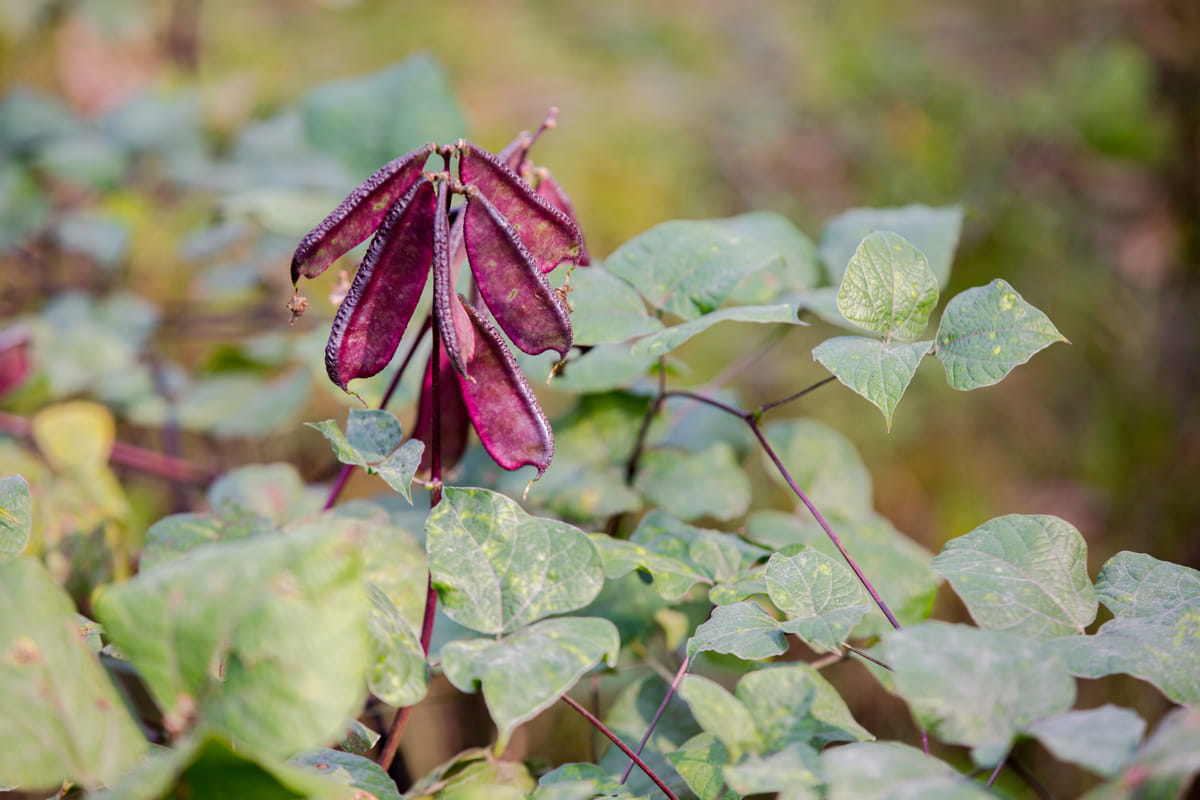
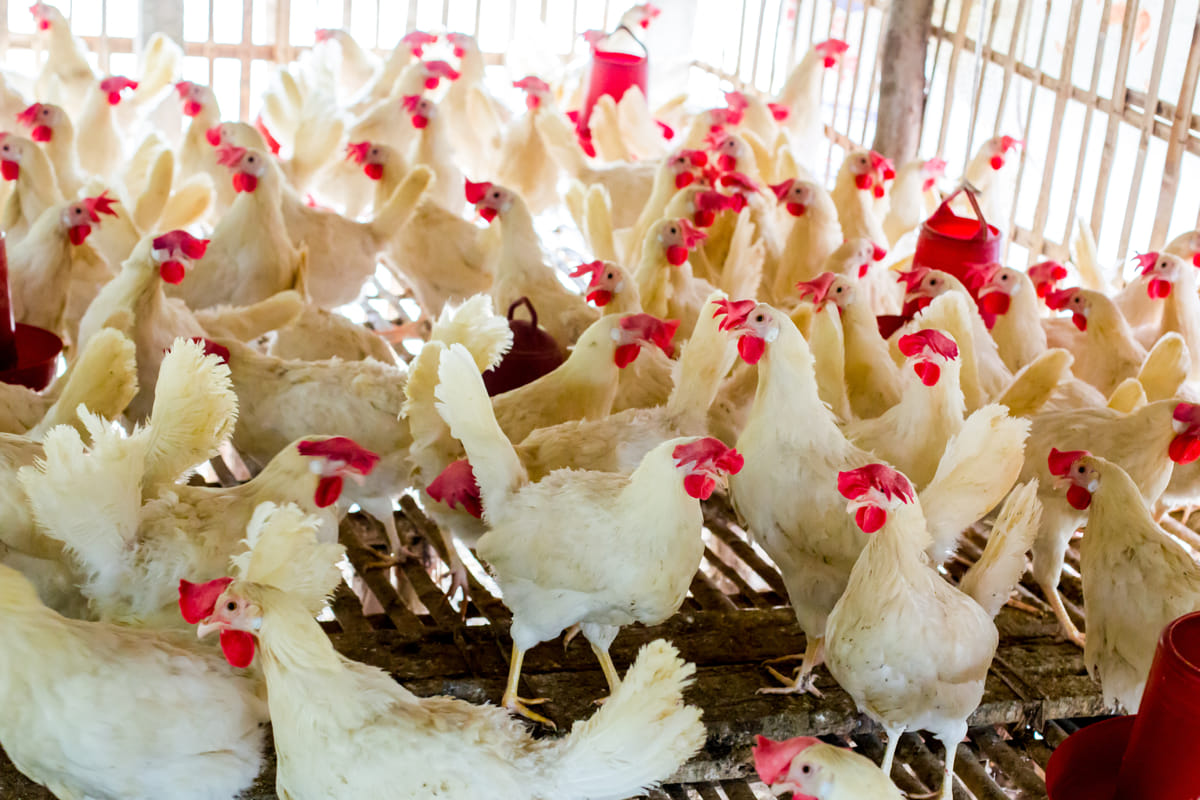
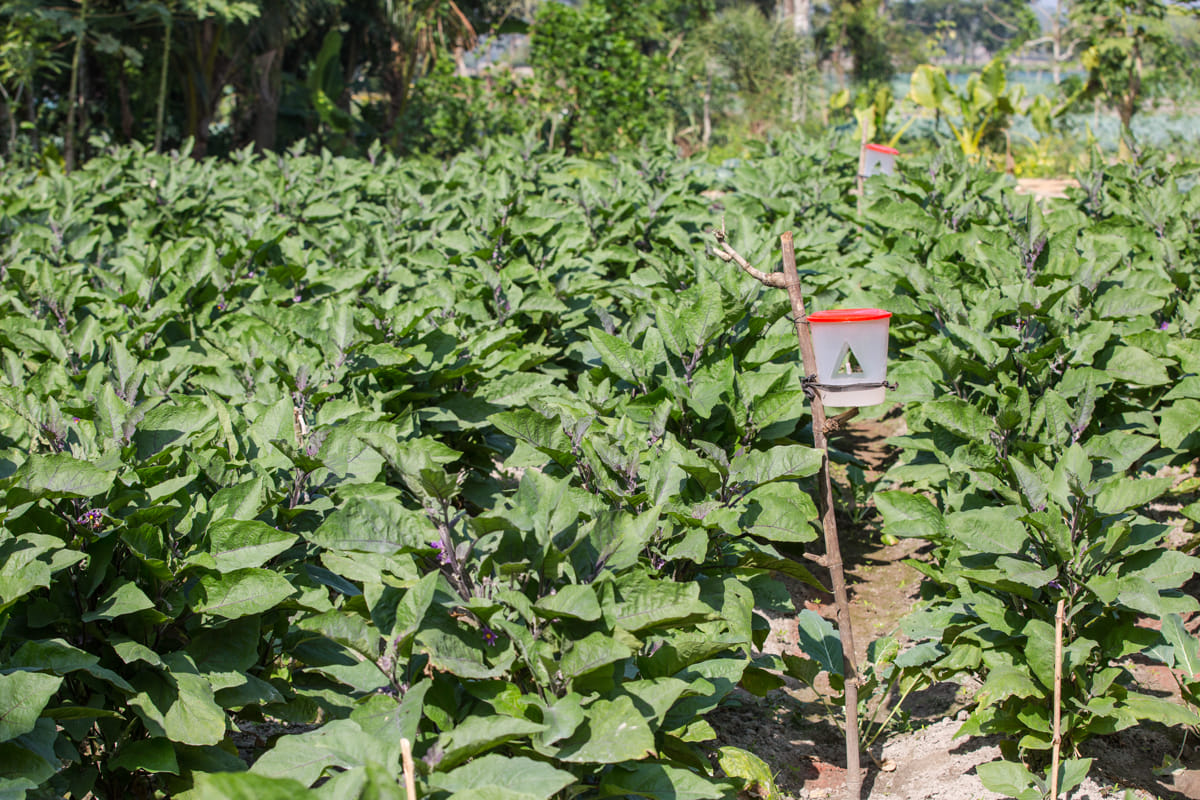
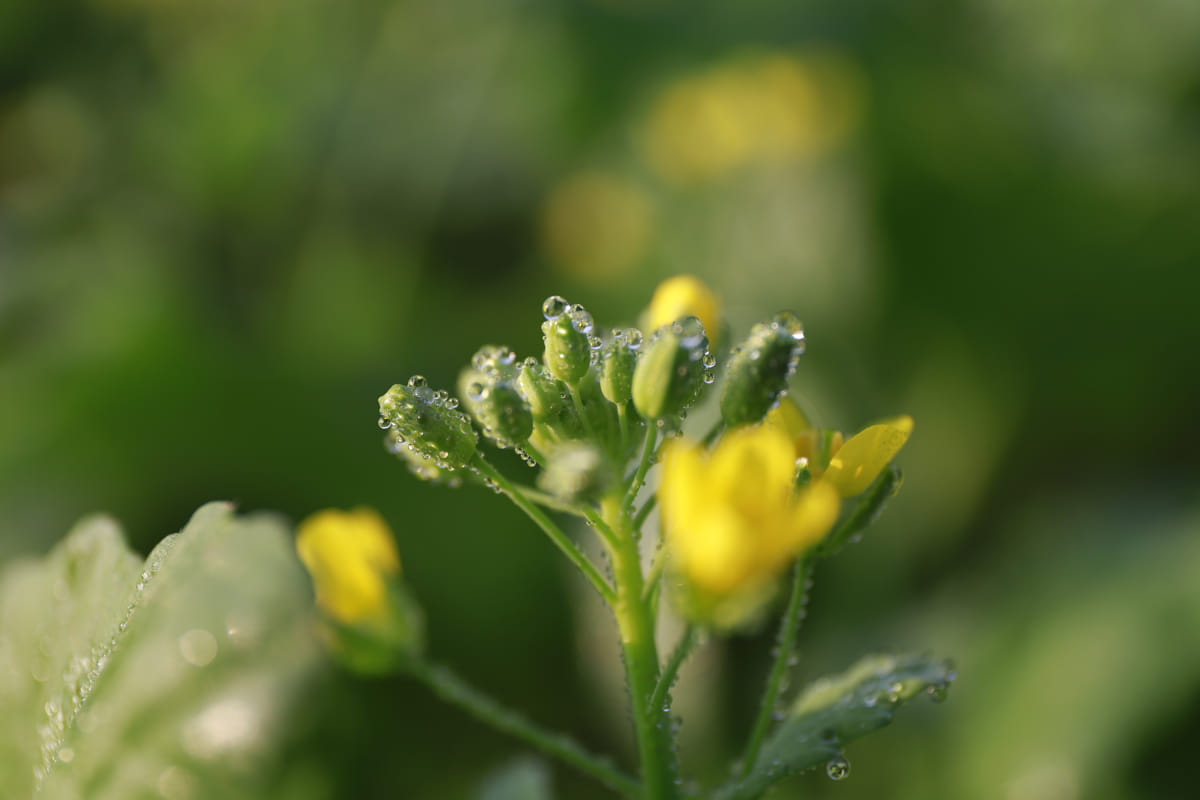
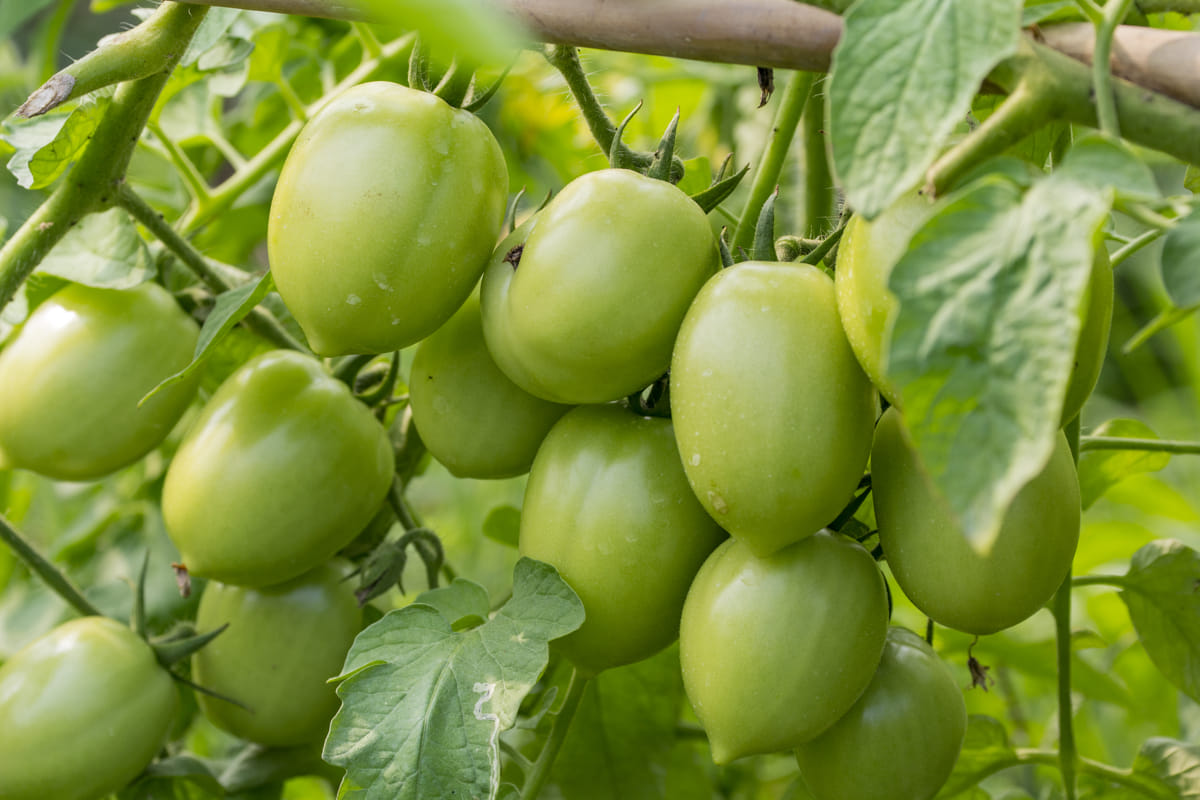

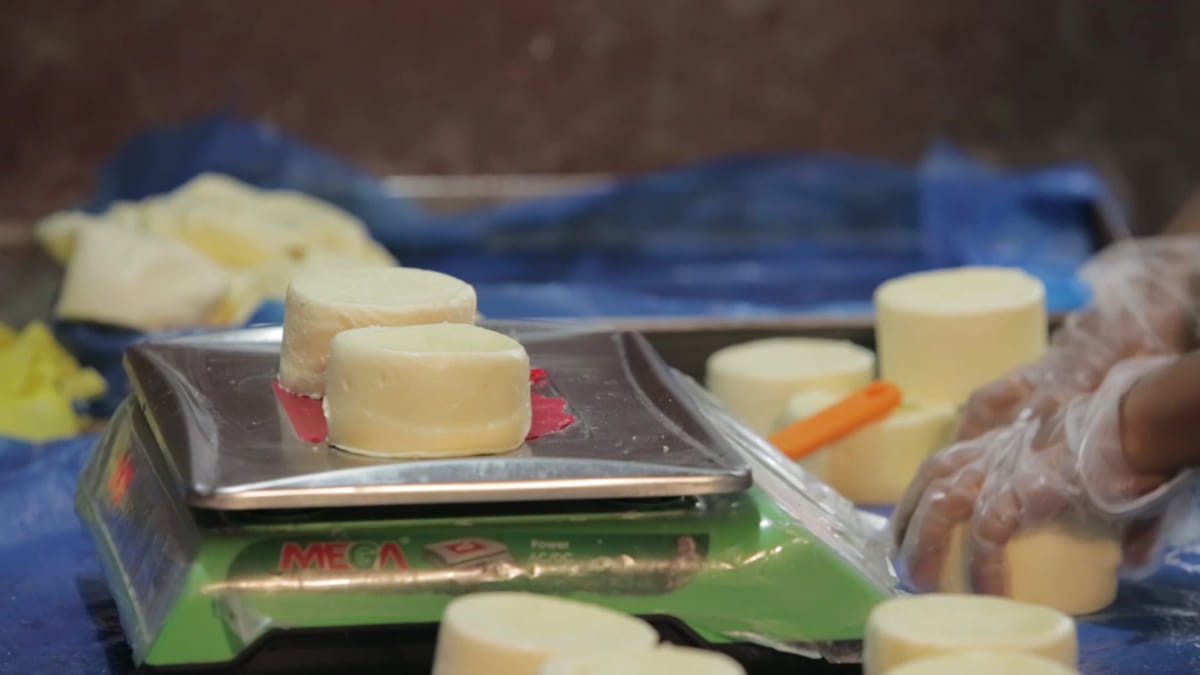
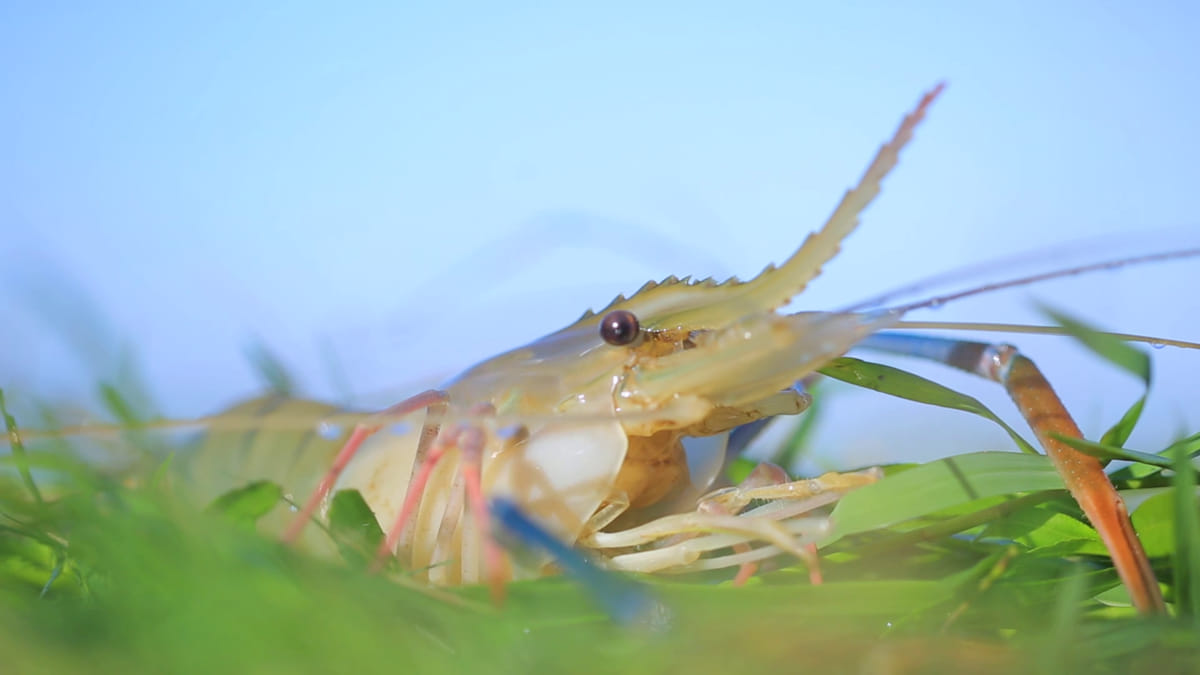
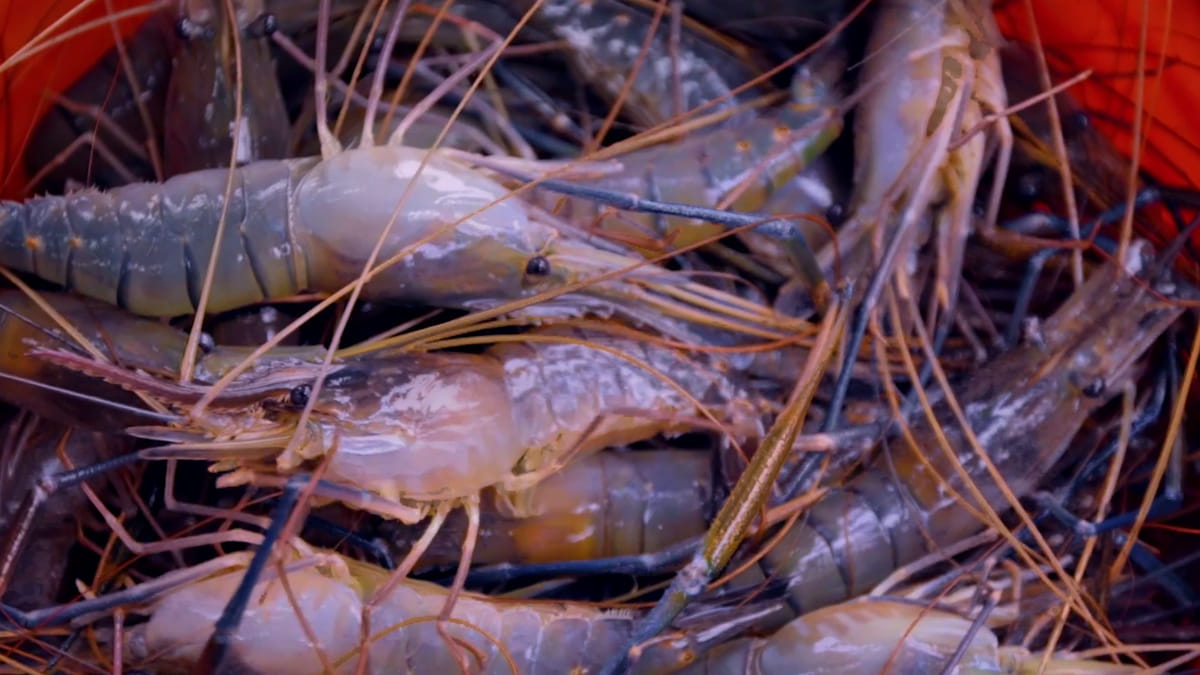
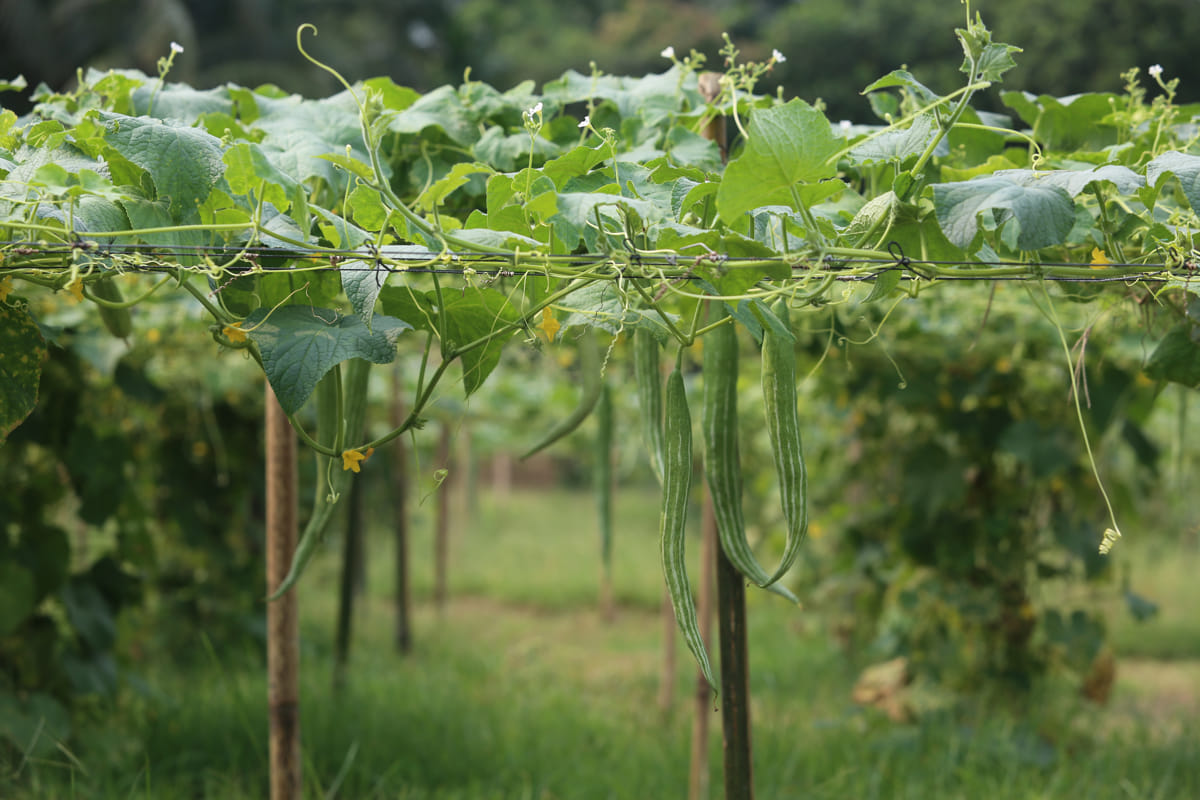

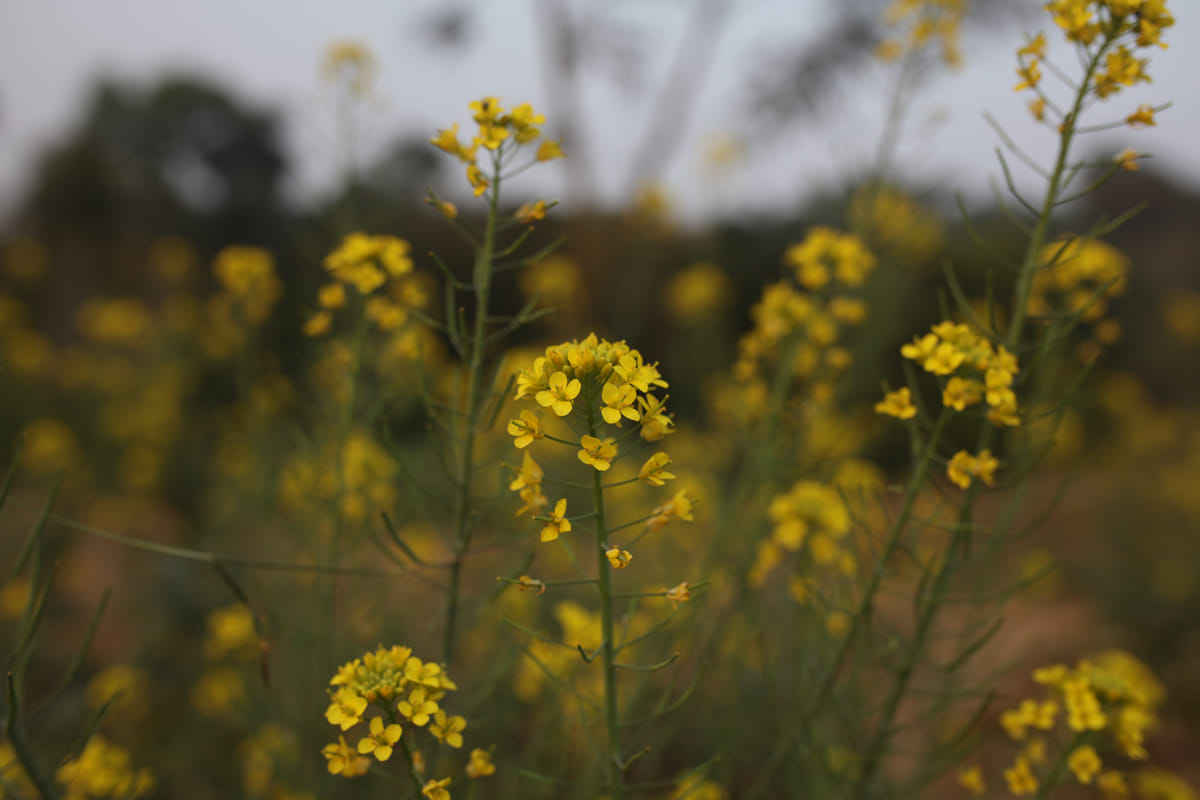
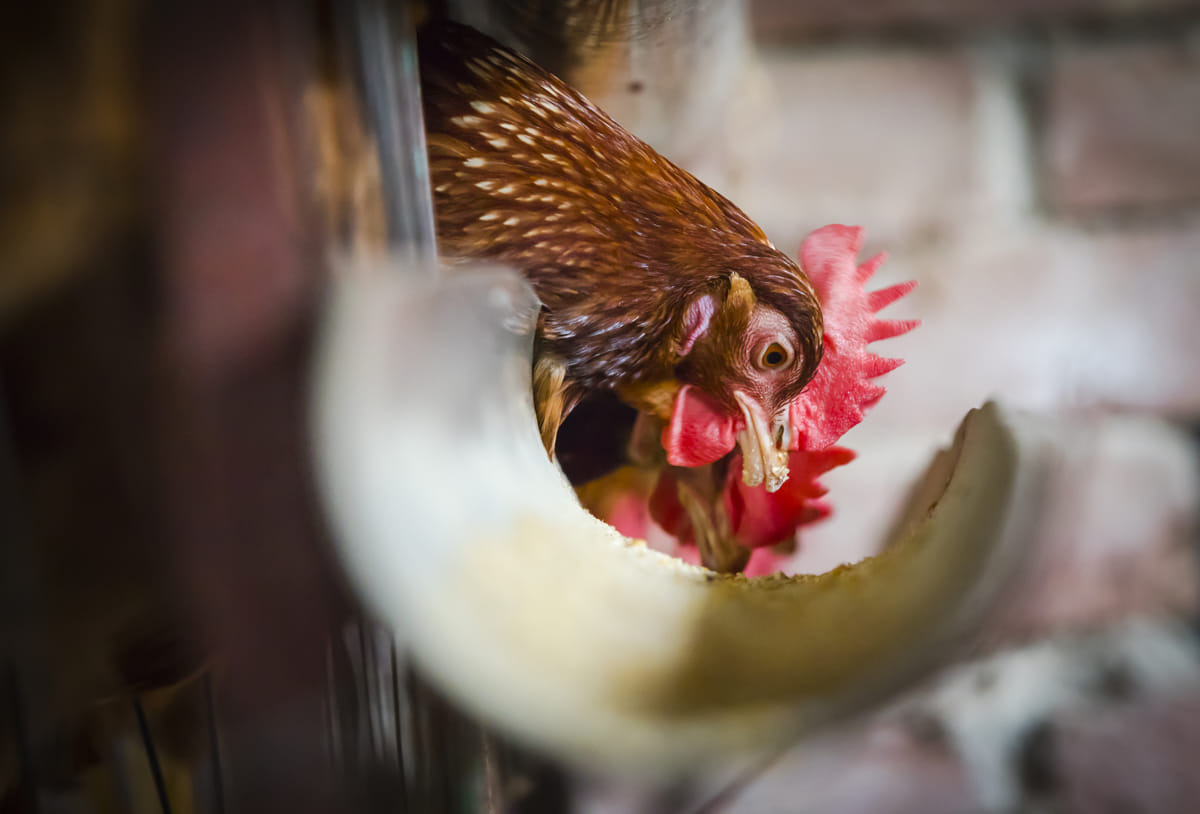

Project Details
Project Goal
The project goal is to sustainably increase the income, food security and nutrition of marginal and small farmers, and micro-entrepreneurs across selected value chains.
Objective
The development objective is the sustainable growth of selected rural commodity value chains with comparative advantage, market demand, growth potential, and backward linkages to small farmers and micro-entrepreneurs.
Project Participants
The project interventions primarily target (i) the poor, (ii) the transitional poor, and (iii) the enterprising poor. An estimated 445,000 households will be direct participants of the project, of which 100,000 are microenterprise borrowers and the other 345,000 will benefit from value chain development activities.
Project Components
Media Center
Value Chain Enhancement
Financial Services
Institutional Strengthening and Project Management
This component will enable 445,000 microenterprises to sustainable expand their activities through adoption of efficient production methods, compliance with internationally recognised food safety and traceability standards, and strong market linkages. It will contribute to creating an enabling environment that promotes the growth of micro and small enterprises, and strengthens their linkages with the agribusinesses and other value chain actors. It has five sub-components: (i) organisation of producers; (ii) provision of technical and business services (including GGAP compliance) to producers through private advisory services; (iii) integration of actors across selected value chains; (iv) strengthening of downstream agribusinesses (including GGAP and HACCP compliance as required); and (v) policy dialogue with Government. The value chains that the project will support fall into three broad categories:
a. Crops and horticulture:high-value cereal crops, high-value fruits and vegetables and pulses, beans, seeds etc.b. Aquaculture:mud crab, carp, crayfish, other local species etc. and
c. Livestock:dairy production, red meat, poultry, eggs
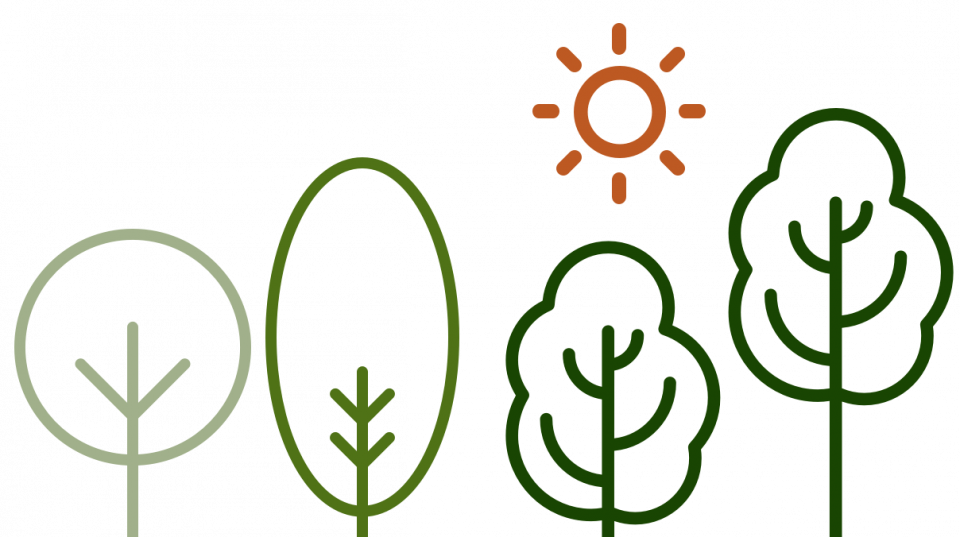
This component will provide sustainable financial services to micro-entrepreneurs and growing/larger enterprises and agribusinesses allowing sustainable growth of their practices. The project also leverages commercial finance through non-bank financial institutions (NBFIs) for investment in growing/larger enterprises and agribusinesses to expand the market for the output of micro-enterprises.

This component aims to strengthen the capability of PKSF and it’s Partner Organizations (POs) as development organizations by leveraging trends in Information Communication Technology (ICT) through ‘Distributed Digital Ledger Technology (Block chain)’, e-commerce and branding, financial services through crowd funding, and new technologies to ensure that the project is managed satisfactorily.
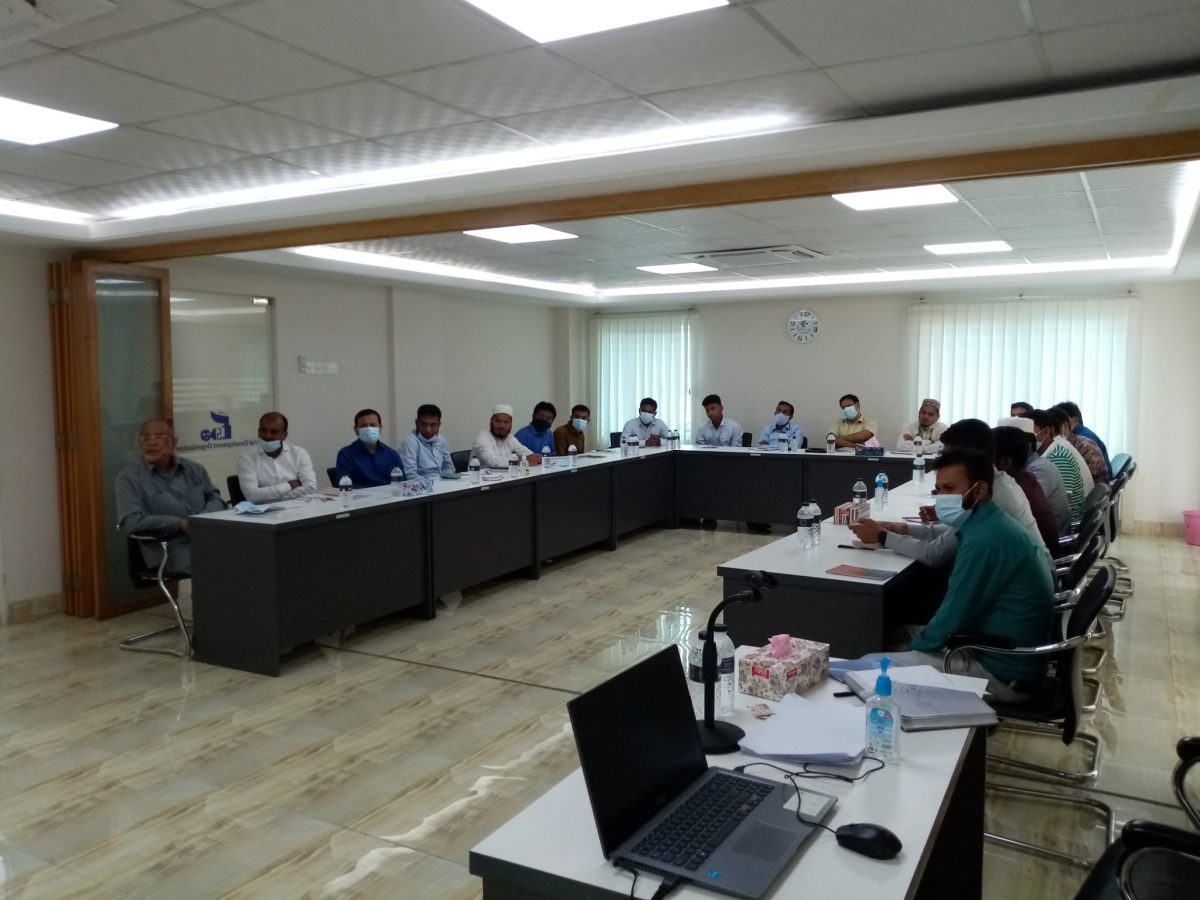
Remarkable media coverage on tulip cultivation
This year, with the financial assistance of PKSF, IFAD and DANIDA, Tulip has been cultivated at Darjipara village in Tetulia upazila of Panchagarh district by ESDO, a Partner Organization of PKSF. A total of 20 marginal farmers collectively sowed 100,000 bulbs on 11 January 2023 in two acres of land. Last year, eight female farmers cultivated tulips from 40,000 bulbs in three separate places in 40 decimals of land.
A total of ten tulip varieties were planted this season. These include Antarctica (white), Denmark (orange), Lalibela (red), Dutch Sunrise (yellow), Strong Gold (yellow), Zantupink (pink), White Marvel (white), Mystic van Eijk (pink), Happy Generation (white-red) and Golden Ticket (yellow).
A series of news reports have been published on tulip cultivation in different national and international media.
For more details, please follow the links: https://pksf.org.bd/remarkable-media-coverage-on-tulip-cultivation/
RMTP Gallery

